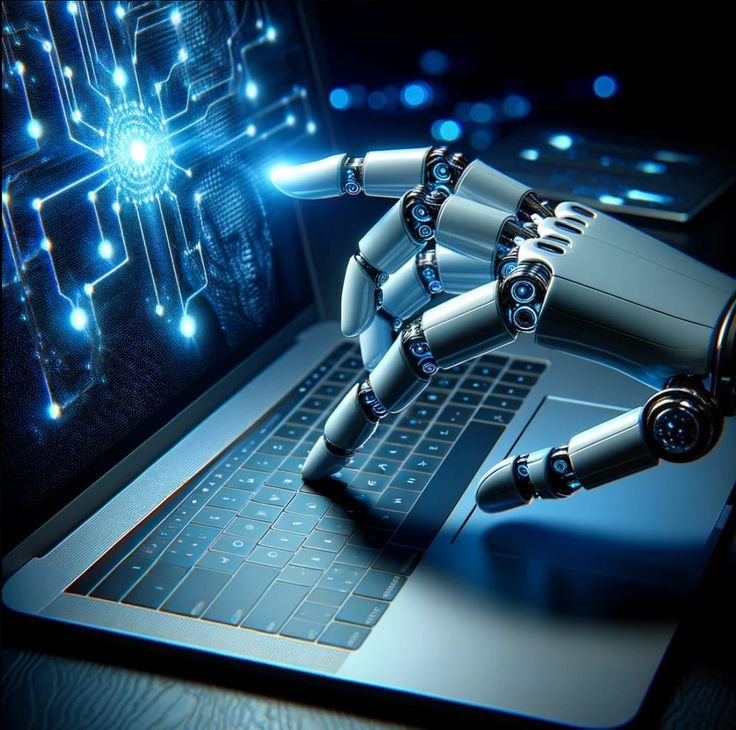
Artificial Intelligence (AI) has made significant strides in recent years, particularly in the realm of personal assistants. These AI-powered applications, such as Apple’s Siri, Amazon’s Alexa, Google Assistant, and Microsoft’s Cortana, have become integral parts of our daily lives. They help us manage tasks, provide information, and even control smart home devices. As AI technology continues to evolve, the capabilities of personal assistants are expected to expand even further. This article explores the future of AI in personal assistants, examining potential advancements, challenges, and their impact on our lives.
Advancements in AI Personal Assistants
1. Improved Natural Language Understanding:
– Future AI personal assistants will have enhanced natural language processing (NLP) capabilities, enabling them to understand and respond to more complex and nuanced human language. This improvement will make interactions more natural and conversational.
2. Contextual Awareness:
– Personal assistants will become more contextually aware, allowing them to understand and remember past interactions. This capability will enable them to provide more relevant and personalized responses based on the user’s history and preferences.
3. Multimodal Interactions:
– The integration of voice, text, and visual inputs will allow personal assistants to interact with users in more versatile ways. For instance, users could provide commands through voice while receiving visual feedback on their devices.
4. Proactive Assistance:
– AI personal assistants will become more proactive, anticipating users’ needs and offering assistance before being asked. This could include reminding users of appointments, suggesting tasks based on their schedule, or providing timely information.
5. Enhanced Personalization:
– By leveraging machine learning algorithms, personal assistants will better understand individual user preferences and behaviors. This will enable them to offer highly personalized recommendations and services.
6. Integration with Smart Environments:
– Personal assistants will play a central role in smart homes and smart cities, seamlessly integrating with various IoT devices. They will control home automation systems, manage energy consumption, and even assist with public services.
7. Emotional Intelligence:
– Future AI personal assistants may develop a degree of emotional intelligence, allowing them to recognize and respond to users’ emotions. This could lead to more empathetic interactions and better support for mental health and well-being.
Challenges and Solutions
1. Privacy and Security:
– As personal assistants collect and process large amounts of personal data, ensuring privacy and security will be paramount. Future advancements must focus on robust encryption, secure data storage, and transparent data usage policies to protect user information.
2. Bias and Fairness:
– AI systems can inherit biases from the data they are trained on, leading to unfair or discriminatory outcomes. Developing techniques to identify and mitigate biases in AI personal assistants is crucial for ensuring fair and equitable service.
3. Dependence on Technology:
– Increased reliance on AI personal assistants may lead to overdependence on technology, potentially impacting users’ ability to perform tasks independently. Encouraging a balanced use of technology and promoting digital literacy will be important.
4. Ethical Considerations:
– The deployment of AI personal assistants raises ethical questions related to autonomy, consent, and accountability. Establishing clear ethical guidelines and frameworks will help navigate these issues responsibly.
5. Technical Limitations:
– Despite advancements, AI personal assistants may still struggle with understanding and responding to highly complex or ambiguous queries. Ongoing research and development are necessary to enhance their capabilities and reliability.
Impact on Daily Life
1. Workplace Productivity:
– AI personal assistants will enhance workplace productivity by automating routine tasks, scheduling meetings, managing emails, and providing quick access to information. This will allow employees to focus on more strategic and creative tasks.
2. Healthcare Support:
– Personal assistants could revolutionize healthcare by offering medication reminders, health monitoring, appointment scheduling, and even preliminary diagnosis through symptom checking. This will improve patient care and accessibility to health services.
3. Education and Learning:
– In education, AI personal assistants will provide personalized learning experiences, assist with homework, and offer educational resources. They can also support teachers by automating administrative tasks and providing insights into student performance.
4. Elderly and Disability Assistance:
– AI personal assistants will significantly benefit the elderly and individuals with disabilities by offering daily assistance, emergency alerts, medication reminders, and companionship. This will enhance their independence and quality of life.
5. Travel and Navigation:
– Personal assistants will simplify travel planning by providing real-time traffic updates, suggesting travel routes, booking accommodations, and offering local recommendations. They can also assist with language translation and cultural information.
6. Entertainment and Leisure:
– AI personal assistants will enhance entertainment experiences by managing media libraries, suggesting content based on preferences, and even creating personalized playlists. They can also facilitate interactive gaming and virtual reality experiences.
Future Directions
1. Advances in Machine Learning:
– Continued advancements in machine learning will lead to more intelligent and capable personal assistants. Techniques such as reinforcement learning and transfer learning will enable them to learn and adapt more efficiently.
2. Integration with Wearable Technology:
– Personal assistants will integrate with wearable devices, providing real-time health monitoring, fitness coaching, and on-the-go assistance. This will make interactions more seamless and context-aware.
3. Collaborative AI Systems:
– The future will see the development of collaborative AI systems where multiple personal assistants and smart devices work together to provide holistic support. This will create a more interconnected and responsive environment.
4. AI-Driven Creativity:
– Personal assistants may assist with creative tasks such as writing, music composition, and art creation. By providing inspiration, suggestions, and technical assistance, they will become valuable tools for artists and creators.
5. Sustainable and Green AI:
– Efforts will be made to develop energy-efficient AI systems, reducing the carbon footprint of personal assistants. Sustainable practices in AI development and deployment will become a priority.
6. Global Accessibility:
– Ensuring that AI personal assistants are accessible to diverse populations, including non-native speakers and those with varying levels of digital literacy, will be crucial. This will involve developing multilingual capabilities and user-friendly interfaces.
Conclusion
The future of AI in personal assistants holds immense potential to transform various aspects of our lives, from enhancing productivity and healthcare to providing personalized entertainment and assistance. While the advancements are promising, it is essential to address the challenges related to privacy, security, bias, and ethical considerations. By focusing on responsible development and deployment, AI personal assistants can become indispensable tools that enhance our daily lives and empower us to achieve more. As technology continues to evolve, the possibilities for AI in personal assistants are limitless, paving the way for a smarter, more connected world.









